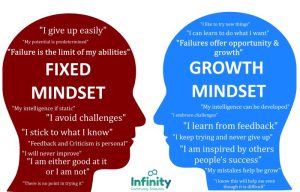Music Therapy for Emotional Healing

Music therapy for emotional healing offers a unique and powerful approach to mental well-being. Harnessing the therapeutic power of music, this holistic modality addresses a wide range of emotional challenges, from stress and anxiety to depression and addiction. Through carefully selected musical interventions, music therapy facilitates emotional processing, promotes self-awareness, and cultivates resilience, ultimately fostering a path towards healing and personal growth.
This exploration delves into the science behind music’s impact on the brain and nervous system, examining how various therapeutic techniques, such as active music making, receptive music listening, and songwriting, can be tailored to meet individual needs. We’ll explore its effectiveness in different contexts, from individual sessions to group settings and workplace wellness programs, highlighting its potential to complement traditional therapeutic approaches and contribute to a more comprehensive approach to mental healthcare.
Music Therapy and Sleep and Mental Health: Music Therapy For Emotional Healing
The intricate relationship between music, sleep, and mental well-being is increasingly recognized in both research and clinical practice. Poor sleep significantly impacts mental health, contributing to conditions like anxiety and depression, while conversely, mental health challenges often disrupt sleep patterns. Music therapy offers a non-pharmacological approach to address this interconnectedness, promoting healthier sleep and mitigating the negative effects on mental health.Music’s influence on sleep and mental health stems from its ability to regulate physiological responses.
Calming music can lower heart rate and blood pressure, reducing stress and promoting relaxation, which are crucial for initiating and maintaining sleep. Conversely, stimulating music can energize individuals struggling with fatigue associated with mental health conditions. The therapeutic use of music taps into these effects to create personalized interventions.
Music Therapy Interventions for Improved Sleep, Music therapy for emotional healing
Music therapy employs various techniques to improve sleep patterns and reduce insomnia. These methods often involve guided imagery, where calming music is paired with verbal suggestions promoting relaxation and sleep. Other techniques include composing or selecting personalized playlists featuring music with slow tempos, simple melodies, and repetitive patterns, creating a predictable and soothing auditory environment. Active music making, such as playing a calming instrument, can also be therapeutic, engaging the mind and promoting relaxation through a creative outlet.
The specific approach is tailored to the individual’s preferences and needs.
Creating a Relaxing Sleep Playlist
A well-crafted playlist can be a powerful tool for promoting relaxation and sleep. The selection of music is crucial. It should generally feature slow tempos (60-80 beats per minute), simple melodies, and minimal instrumentation. Nature sounds, such as rain or ocean waves, can be incorporated to further enhance the calming effect. The music should be free of jarring sounds or sudden changes in tempo or volume.
Consistency is key; using the same playlist nightly can help establish a sleep-promoting routine.
A sample playlist might include instrumental pieces of classical music (e.g., selections from Debussy or Satie), ambient music featuring nature sounds, or meditative soundscapes. The key is to select music that evokes feelings of calm, peace, and serenity. Avoid music with lyrics, as they can stimulate the mind and hinder relaxation.
Music Therapy and Workplace Mental Health

The integration of music therapy into workplace wellness programs is a burgeoning field, recognizing the profound impact of mental well-being on employee productivity and overall organizational success. By addressing stress, improving mood, and fostering a sense of connection, music therapy offers a unique and effective approach to enhancing the workplace environment. This approach moves beyond traditional wellness initiatives, offering a holistic and engaging method to improve employee mental health.Music therapy offers a multifaceted approach to improving workplace mental health, leveraging the power of music to address a range of challenges.
It’s not simply about playing calming music in the background; rather, it involves structured therapeutic interventions designed to achieve specific, measurable outcomes related to stress reduction, improved focus, and enhanced teamwork. The benefits extend beyond individual employees, positively impacting team dynamics and overall organizational culture.
Benefits of Music Therapy for Reducing Stress and Improving Productivity
Music therapy demonstrably reduces stress and improves productivity in the workplace. Active music participation, such as drumming circles or singing groups, can serve as a healthy outlet for pent-up emotions and stress. Passive listening to specifically curated music can also promote relaxation and reduce anxiety levels. Studies have shown a correlation between reduced stress levels and increased focus, leading to higher productivity and improved job satisfaction.
For instance, a study published in the Journal of Occupational Health Psychology found that employees who participated in a music therapy program reported significantly lower levels of stress and burnout, along with increased job satisfaction and productivity. These improvements can translate into tangible benefits for organizations, including reduced absenteeism, decreased healthcare costs, and a more positive and productive work environment.
Designing a Workplace Music Therapy Program for Employee Well-being
A successful workplace music therapy program requires careful planning and implementation. The program should be tailored to the specific needs and preferences of the employees, considering factors such as the nature of the work, the organizational culture, and the available resources. A phased approach may be beneficial, starting with pilot programs and gradually expanding based on feedback and results.The program should clearly define its goals and objectives, including specific measurable outcomes.
For example, the program might aim to reduce stress levels by a certain percentage, improve employee morale, or increase team cohesion. A comprehensive program might include various music therapy modalities, such as guided imagery and music, active music making, and receptive music listening sessions. It is crucial to employ qualified and experienced music therapists who are familiar with the unique challenges of the workplace environment.
Regular evaluation of the program’s effectiveness is essential to ensure that it is meeting its objectives and making a positive impact on employee well-being. This evaluation should include both quantitative data, such as stress levels and productivity metrics, and qualitative data, such as employee feedback and testimonials. The program should also incorporate ongoing training and professional development for the music therapists to ensure they are utilizing the most current and effective techniques.
A well-structured program, encompassing these elements, can significantly contribute to a healthier, more productive, and more engaged workforce.
Music Therapy and Personal Growth and Self-Care

Music therapy offers a powerful pathway to self-discovery, fostering personal growth and enhancing self-care practices. It provides a non-judgmental space for emotional exploration and expression, ultimately leading to increased self-awareness and a stronger sense of self. Through the therapeutic use of music, individuals can gain valuable insights into their inner world and develop healthier coping mechanisms.Music therapy promotes self-discovery by encouraging clients to explore their emotions through musical improvisation, songwriting, or listening to specific pieces of music.
The process of creating music, whether through playing an instrument or singing, allows for the spontaneous expression of feelings that may be difficult to articulate verbally. Similarly, listening to music can evoke powerful memories and emotions, facilitating a deeper understanding of one’s own experiences and patterns of behavior. This process of self-reflection, facilitated by the music, is a key component of personal growth.
Self-Expression and Self-Acceptance Through Music Therapy
Music therapy provides a safe and supportive environment for self-expression, allowing individuals to communicate their emotions and experiences in a non-threatening way. This is particularly beneficial for individuals who struggle with verbal communication or find it difficult to express their feelings directly. Through music, they can explore and process their emotions, leading to a greater sense of self-acceptance and understanding.
The process of creating and sharing music can also foster a sense of connection and belonging, strengthening self-esteem and reducing feelings of isolation. The therapist acts as a guide, helping clients explore their musical expression and interpret its meaning within the context of their personal journey.
Improving Self-Esteem and Confidence
Music therapy can significantly improve self-esteem and confidence by providing opportunities for mastery and accomplishment. Learning a new instrument, mastering a difficult musical piece, or successfully expressing complex emotions through music can boost self-efficacy and foster a sense of pride and accomplishment. The therapist can tailor interventions to focus on building skills and celebrating successes, reinforcing positive self-perception. Group music therapy can further enhance self-esteem by fostering a sense of community and shared experience.
The collaborative nature of group sessions can help individuals feel supported and valued, enhancing their self-worth.
Incorporating Music into Daily Self-Care Routines
Incorporating music into daily life is a simple yet effective way to enhance self-care. Listening to calming music can reduce stress and anxiety, while engaging in active music-making, such as singing or playing an instrument, can be a creative outlet for emotional expression. Creating personalized playlists for different moods and activities can help manage emotions and enhance overall well-being.
Even a few minutes of mindful listening to music each day can have a positive impact on mental and emotional health. The key is to find musical activities that are enjoyable and accessible, making them a sustainable part of a self-care routine.
Visual Representation of a Music Therapy Session
Imagine a softly lit room, furnished with comfortable seating and a variety of musical instruments – a guitar rests gently on a stand, a keyboard sits invitingly open, and a collection of percussion instruments is neatly arranged. A woman sits comfortably in a plush armchair, her eyes closed, gently humming along to a melodic tune playing softly from a nearby speaker.
Her therapist, seated opposite her, observes attentively, occasionally offering gentle encouragement or suggestions. The woman then picks up a tambourine, her movements initially hesitant, but gradually becoming more confident and expressive as she explores the rhythm and sound. The session unfolds organically, allowing the woman to explore her emotions and express herself freely through music, guided by the supportive presence of her therapist.
Her face reflects a growing sense of peace and self-discovery as she engages with the music, her body relaxing and her breathing deepening. The atmosphere is one of calm focus and gentle exploration, allowing for authentic self-expression and emotional healing.
In conclusion, music therapy presents a compelling and multifaceted approach to emotional healing. Its ability to engage multiple facets of human experience—cognitive, emotional, and physical—makes it a valuable tool in addressing a wide spectrum of mental health concerns. By fostering self-expression, promoting relaxation, and enhancing emotional regulation, music therapy empowers individuals to navigate life’s challenges with greater resilience and well-being.
Further research and wider accessibility will undoubtedly solidify its place as a vital component of holistic mental healthcare.
FAQ Corner
Is music therapy right for everyone?
While generally safe and beneficial, music therapy’s suitability depends on individual needs and preferences. A consultation with a qualified music therapist can determine its appropriateness.
How long does music therapy take to show results?
The timeframe varies greatly depending on individual circumstances and treatment goals. Some individuals experience positive changes quickly, while others may require a longer course of therapy.
How much does music therapy cost?
Costs vary depending on the therapist, location, and type of services provided. It’s advisable to inquire directly with music therapists in your area for pricing information.
Can music therapy be used alongside other therapies?
Absolutely. Music therapy often complements other therapies like talk therapy or medication, providing a holistic approach to mental wellness.






